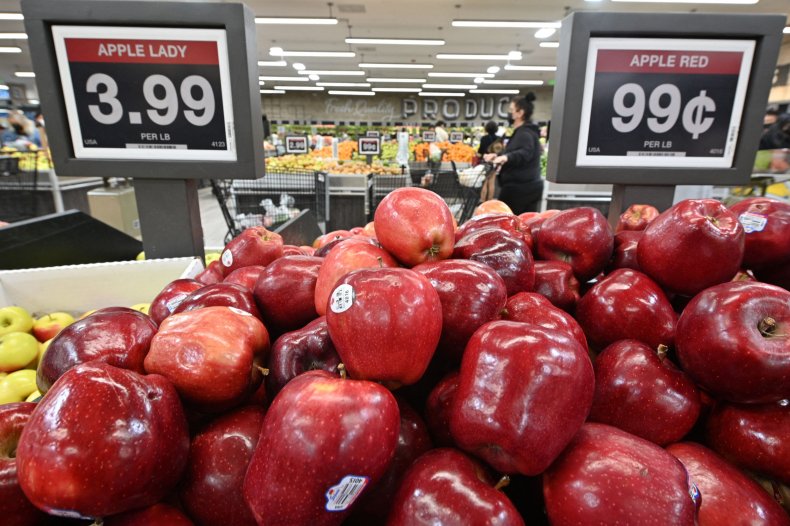Inflation rose 7.5 percent year-on-year to January, 2022, the Department of Labor announced on Thursday, marking the fastest annualized acceleration in the price of consumer goods since February 1982.
The rate is a rise on December's 7 percent, which showed prices had grown at the fastest pace since June 1982.
The accelerating rate of inflation may be cause for concern for President Joe Biden and the Democratic Party as the U.S. heads into crucial midterm elections this November and the cost of living remains a major issue for many Americans.
The Consumer Price Index (CPI) measures the average change over time in prices paid by urban consumers for a so-called "market basket" of goods and services including food, energy and other items.
Some economists had expected inflation to be around 7.3 percent—nearly four times the Federal Reserve's inflation target of 2 percent.
Prices rose 0.6 percent in January, whereas they had risen 0.6 percent from November to December and 0.7 percent from October to November.
The food price index saw a 0.9 percent rise in January following a 0.5 percent rise in December, while the energy index also rose 0.9 percent in January.
The index for all items other than food rose 0.6 percent in January—the same rate as in December.
"The all items index rose 7.5 percent for the 12 months ending January, the
largest 12-month increase since the period ending February 1982," the U.S. Bureau of Labor Statistics noted in its statement on Thursday.
The Federal Reserve has indicated that they will increase interest rates this year beginning at the Fed's policy meeting on March 15 and 16. It is not yet clear the extent to which they will raise interest rates.
Federal Reserve Chairman Jerome Powell suggested on January 26 that there could be several rate increases throughout 2022 as the Fed monitors how quickly inflation falls to the 2 percent target.
"The committee is of a mind to raise the federal funds rate at the March meeting assuming that the conditions are appropriate for doing so," Powell said.
Powell said that since the Fed's December meeting inflation "has not gotten better. It has probably gotten a bit worse ... To the extent that situation deteriorates further, our policy will have to reflect that."
"This is going to be a year in which we move steadily away from the very highly accommodative monetary policy we put in place to deal with the economic effects of the pandemic," he said.
Interest rate rises would increase the cost of borrowing, potentially helping to tamp down inflation.
It remains to be seen what steps the Fed will take now that inflation has recorded another 40-year high. Powell has previously called high inflation a "severe threat to the achievement of maximum employment."
The U.S. unemployment rate is 4 percent but is expected to fall further this year.









